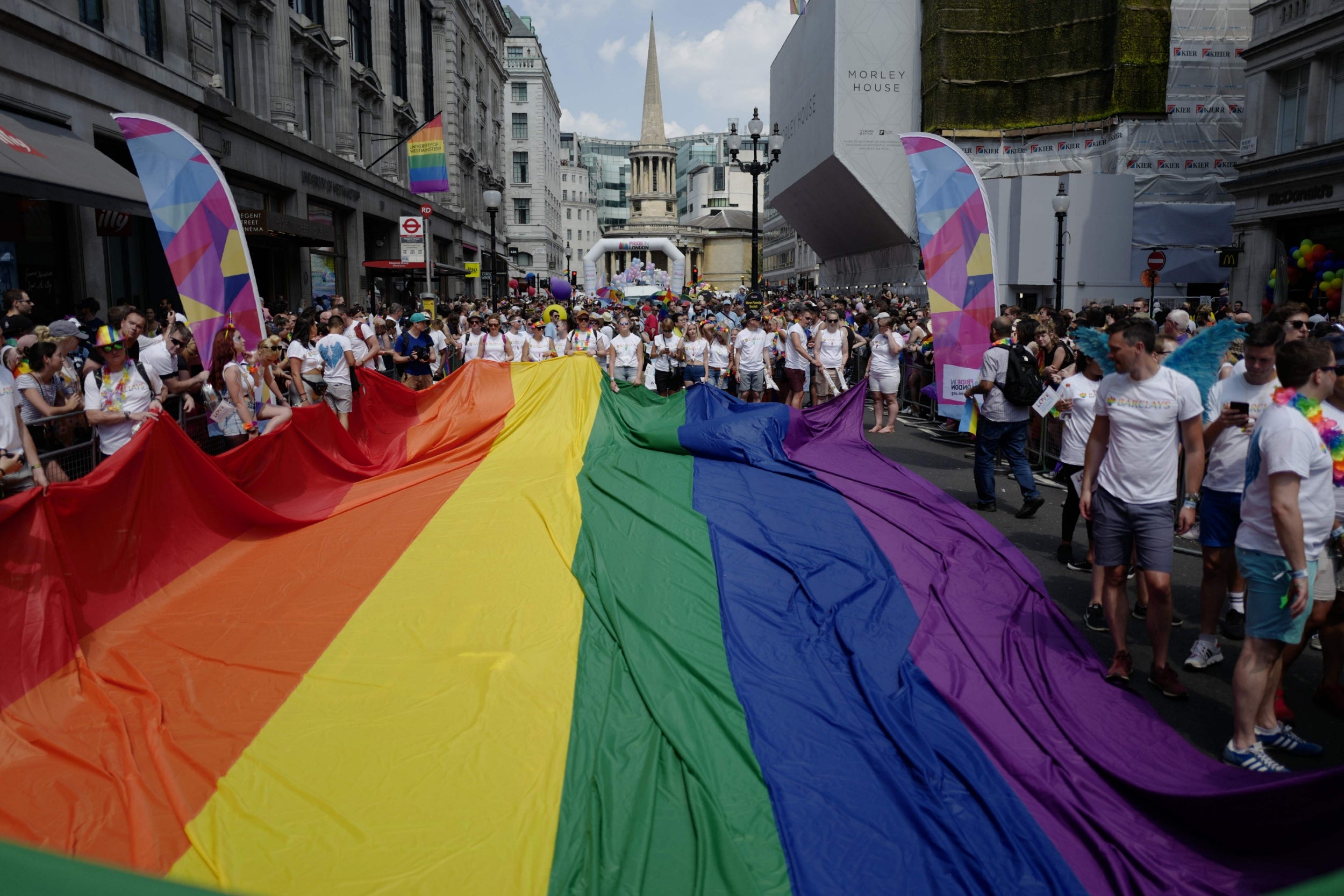This is what LGBTQI+ people have to go through to gain asylum in the UK
In recent years, the Home Office has refused some claims on the basis of not believing the applicants genuinely identify as gay, lesbian, bisexual, transgender or intersex

As an immigration lawyer, some of the most heart-wrenching cases I have dealt with have been those involving LGBTQI+ applicants seeking safety and security through refugee status in the UK. Contrary to the rhetoric put forward by some of our more right-wing media, the UK is not full of people pretending to be gay in order to successfully obtain refugee status.
In reality, it is extremely difficult to obtain protection through the asylum process, and for the LGBTQI+ individual applying on the basis of their sexual or gender status, the journey can be extremely traumatic, invasive and long-winded, with no guarantee of success.
Asylum law in the UK is complex and applications made by individuals seeking international protection are, more often than not, refused. An individual will be recognised as a refugee under the UN Convention Relating to the Status of Refugees if they can establish that they have left their country and cannot return because they hold a well-founded fear of persecution there for – among other things – their membership of a “particular social group”. This will include LGBTQI+ individuals.
Refugee status in the UK lasts for five years; giving the right to work and study, and apply for benefits and housing in the same way as a British citizen. Close family members and the applicant’s children will usually obtain the same rights on a successful application; if those family members are abroad, they may apply for family reunion.
An LGBTQI+ individual protected by refugee status will have had to establish that their country of origin persecutes those who are open about their sexual orientation or gender identity. Applicants must show evidence of the likelihood of suffering serious harm on the basis that they are gay, lesbian, bisexual, transgender or intersex. The definition of serious harm includes physical violence, torture or imprisonment, as well as extra-judicial execution or prosecution for consensual same sex-acts, depending upon the country in question.
Proving persecution or fear of persecution if they return can, of course, be difficult to evidence; which is hardly surprising for people living in fear for their safety, or indeed the safety of loved ones. Physical evidence may be impossible to provide, meaning oral evidence will sometimes be all that is available.
Individuals from countries that have legislated against being gay – such as Pakistan, Uganda and Iran – may have an evidential advantage in terms of illustrating the likelihood of persecution. This may in turn increase the likelihood of a successful application for refugee status. However, cases have been and continue to be refused where the applicant is not believed, or where the Home Office takes the view that the fear of harm is insufficiently well-founded, or indeed that what is feared by the applicant is not serious enough to warrant protection.
Applicants must additionally prove that harm may come from the government or related authorities, or other sections of the population from which the government either cannot or will not provide protection. In reality, for many people the worst examples of persecution and violence originate from their family or immediate community.
A further hurdle for applicants lies in proving the fact of their sexuality or gender, particularly if they have never publicly acknowledged their identity. In recent years, the Home Office has refused some LGBTQI+ claims on the basis of not believing the applicants genuinely identify as gay, lesbian, bisexual, trangender or intersex.
Individuals don’t have to have lived an out lifestyle in order to obtain protection, but equally they would not be expected to go back to their country of nationality and have to hide their sexual or gender identity to avoid persecution there.
Of course, a successful application resulting in refugee status does not always provide a “happily ever after” story. In the UK, despite the legislation we have in place to protect the rights of the LGBTQI+ community, Stonewall’s 2017 LGBT in Britain: Hate Crime report revealed high levels of hate crime due to sexual orientation and/or gender identity, and a reluctance amongst the community to report such attacks to the police.
And the 2016 No Safe Refuge report by The UK Lesbian and Gay Immigration Group, in conjunction with Stonewall, on the treatment of LGBTQI+ people held in immigration removal centres, revealed discrimination and harassment of LGBT+ applicants, with trans applicants at particular risk of violence.
These reports both illustrate that urgent action is required; people seeking refugee determination form an extremely vulnerable group, and must be treated sympathetically, and supported. To this end, the Home Office must ensure that the application process for refugee status for LGBTQI+ people in particular is carried out fairly and transparently, with detailed training rolled out to identify and tackle homophobia, biphobia and transphobia at all levels.
Gary McIndoe is an immigration lawyer and managing director of specialist immigration law firm Latitude Law
Join our commenting forum
Join thought-provoking conversations, follow other Independent readers and see their replies
Comments
Bookmark popover
Removed from bookmarks